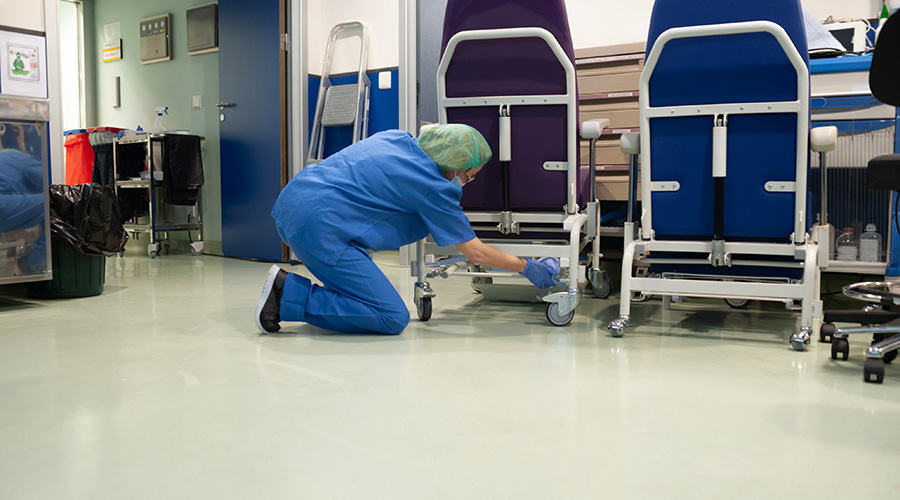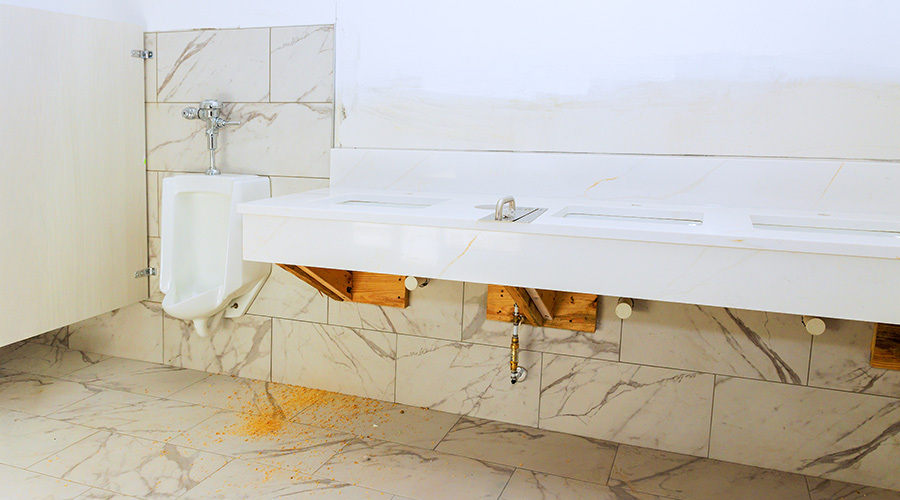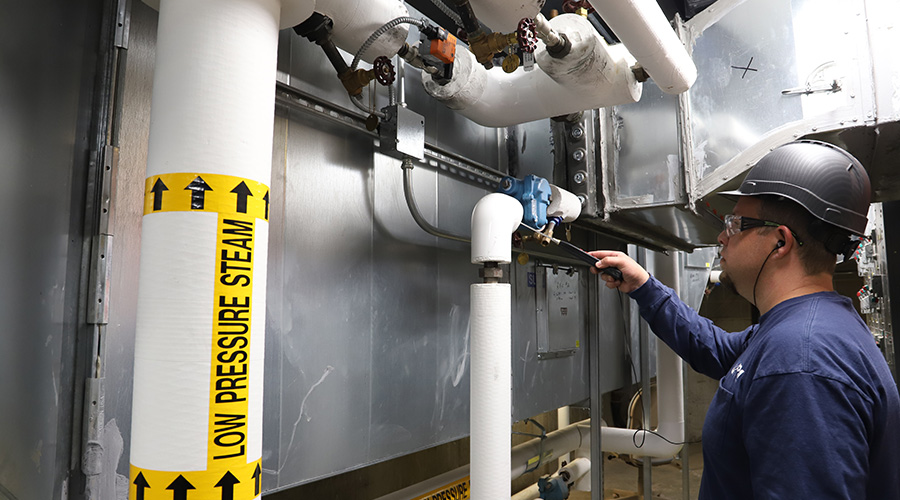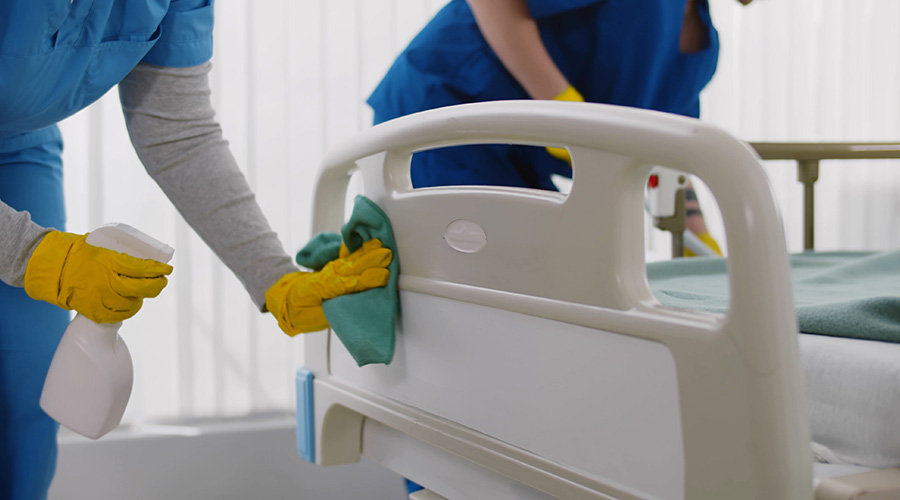The National Advertising Division has recommended that American Dryer, Inc., discontinue challenged advertising claims for the company’s ExtremeAir CPC Commercial Jet Air Hand Dryers, including claims that state or imply the product kills pathogens such as E. Coli, Influenza A, Staph and others. The claims at issue were challenged by Kimberly-Clark Corporation.
NAD is an investigative unit of the advertising industry’s system of self-regulation. It is administered by the Council of Better Business Bureaus.
NAD reviewed claims that included:
CPC technology is proven to kill germs by leading microbiology labs. Lab test results – Average Kill Rate: E. Coli 99.03%, Salmonella 96.43%, Influenza A 99.17%, Staph 93.49%, MRSA 96.43%... shown to kill norovirus and Influenza.*”
“ExtremeAir CPC is the most hygienic method of hand drying ever!”
“Independently proven to kill: E. Coli, Salmonella, Influenza A, Staph, C.diff, MRSA.”
The advertiser explained that cold plasma technology is intended to kill microorganisms present in the air being pulled into, and subsequently expelled from, its hand drying unit during operation. The advertiser noted that its product uses a generator that creates ionized air which contains positive and negative charged molecules to attract and kill germs. In support of its claims, the advertiser provided testing conducted by two separate laboratories, an advertiser-commissioned White Paper posted to its website and the expert opinion of a regulatory scientist.
NAD noted in its decision that cold plasma technology has been studied for potential application to the decontamination of food contact surfaces and medical instruments and that the ability of the technology to kill germs on surfaces is dependent upon many factors including, but not limited to, the types and quantities of the pathogens tested and the duration and distance of exposure of the tested pathogens to ionization.
In this case, however, NAD noted, the advertiser made claims of germ-killing efficacy with respect to cold plasma technology on air drawn into and expelled from its product under real-world conditions.
Following its review of the evidence in the record, NAD concluded that the advertiser’s evidence was not sufficient to support the challenged express claims or the reasonably conveyed messages that its product killed germs on hands dried under the device, or offered a more hygienic or superior public health benefit in public facilities.
NAD recommended that the advertiser discontinue its claims that, with respect to air on or around the dryer, or hands placed under its unit, its ExtremeAir CPC Commercial Jet Air Hand Dryers, “kill germs”, is “[i]ndependently proven to kill: E. Coli, Salmonella, Influenza A, Staph, C.diff, MRSA.”, “does what no other hand dryer can do: It kills germs,” is “is the most [one of the most] hygienic method of hand drying ever!”, and that the advertiser avoid any implication that its product provides a more hygienic experience with respect to hands dried under ExtremeAIR CPC dryer as opposed to these other methods. NAD further recommended that the advertiser discontinue express or implied claims that convey the unsupported message that its product provides a superior hygienic or public health benefit than conventional hand dryers or other methods of hand drying.
American Dryer said that while it was disappointed with NAD’s findings, it would take NAD’s recommendations into account in future advertising.
Note: A recommendation by NAD to modify or discontinue a claim is not a finding of wrongdoing and an advertiser's voluntary discontinuance or modification of claims should not be construed as an admission of impropriety. It is the policy of NAD not to endorse any company, product, or service. Decisions finding that advertising claims have been substantiated should not be construed as endorsements.
###
About Advertising Industry Self-Regulation: The Advertising Self-Regulatory Council establishes the policies and procedures for advertising industry self-regulation, including the National Advertising Division (NAD), Children’s Advertising Review Unit (CARU), National Advertising Review Board (NARB), Electronic Retailing Self-Regulation Program (ERSP) and Online Interest-Based Advertising Accountability Program (Accountability Program.) The self-regulatory system is administered by the Council of Better Business Bureaus.
Self-regulation is good for consumers. The self-regulatory system monitors the marketplace, holds advertisers responsible for their claims and practices and tracks emerging issues and trends. Self-regulation is good for advertisers. Rigorous review serves to encourage consumer trust; the self-regulatory system offers an expert, cost-efficient, meaningful alternative to litigation and provides a framework for the development of a self-regulatory solution to emerging issues.
To learn more about supporting advertising industry self-regulation, please visit us at: www.asrcreviews.org.

 Biofilm 'Life Raft' Changes C. Auris Risk
Biofilm 'Life Raft' Changes C. Auris Risk How Healthcare Restrooms Are Rethinking Water Efficiency
How Healthcare Restrooms Are Rethinking Water Efficiency Northwell Health Finds Energy Savings in Steam Systems
Northwell Health Finds Energy Savings in Steam Systems The Difference Between Cleaning, Sanitizing and Disinfecting
The Difference Between Cleaning, Sanitizing and Disinfecting Jupiter Medical Center Falls Victim to Third-Party Data Breach
Jupiter Medical Center Falls Victim to Third-Party Data Breach